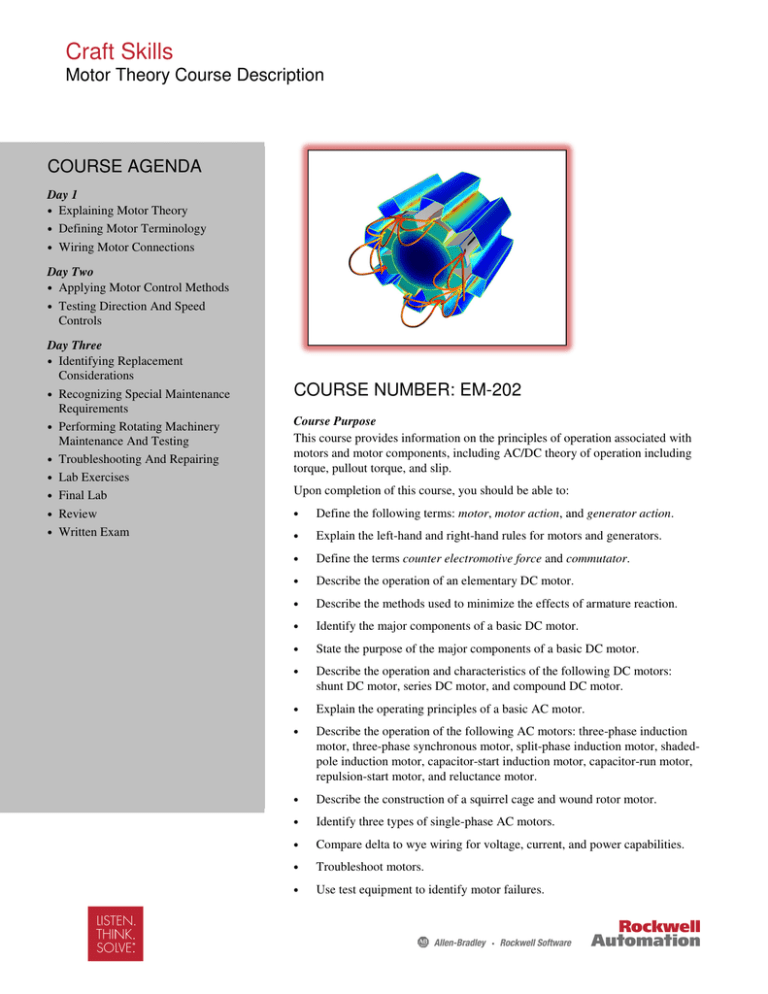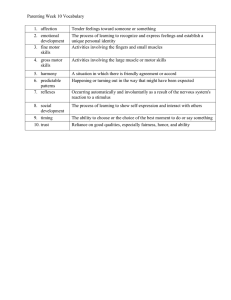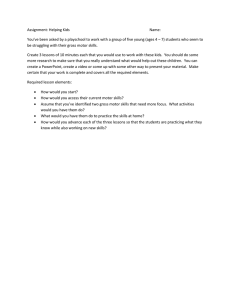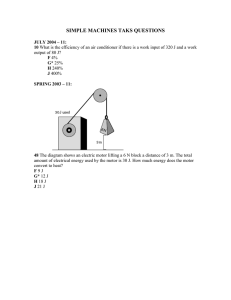
Craft Skills
Motor Theory Course Description
COURSE AGENDA
Day 1
• Explaining Motor Theory
• Defining Motor Terminology
• Wiring Motor Connections
Day Two
• Applying Motor Control Methods
• Testing Direction And Speed
Controls
Day Three
• Identifying Replacement
Considerations
• Recognizing Special Maintenance
Requirements
• Performing Rotating Machinery
Maintenance And Testing
• Troubleshooting And Repairing
• Lab Exercises
• Final Lab
• Review
• Written Exam
COURSE NUMBER: EM-202
Course Purpose
This course provides information on the principles of operation associated with
motors and motor components, including AC/DC theory of operation including
torque, pullout torque, and slip.
Upon completion of this course, you should be able to:
•
Define the following terms: motor, motor action, and generator action.
•
Explain the left-hand and right-hand rules for motors and generators.
•
Define the terms counter electromotive force and commutator.
•
Describe the operation of an elementary DC motor.
•
Describe the methods used to minimize the effects of armature reaction.
•
Identify the major components of a basic DC motor.
•
State the purpose of the major components of a basic DC motor.
•
Describe the operation and characteristics of the following DC motors:
shunt DC motor, series DC motor, and compound DC motor.
•
Explain the operating principles of a basic AC motor.
•
Describe the operation of the following AC motors: three-phase induction
motor, three-phase synchronous motor, split-phase induction motor, shadedpole induction motor, capacitor-start induction motor, capacitor-run motor,
repulsion-start motor, and reluctance motor.
•
Describe the construction of a squirrel cage and wound rotor motor.
•
Identify three types of single-phase AC motors.
•
Compare delta to wye wiring for voltage, current, and power capabilities.
•
Troubleshoot motors.
•
Use test equipment to identify motor failures.
Who Should Attend
This course is designed for electrical maintenance
technicians.
Prerequisites
To successfully complete this course, the following
prerequisites are required:
•
Next Learning Level
Once you have mastered the skills covered in this course,
you may want to attend specific training, such as: AC and
DC Generator Theory course (Course No. EM-203).
Course Length
This is a three-day course.
None
Technology Requirements
All technology is provided for student use in the
classroom by Rockwell Automation. It is not necessary
for students to bring any technology with them when
attending this course.
Student Materials
To enhance and facilitate your learning experience, the
following materials are provided as part of the course
package.
•
Student Manual, which contains the key concepts,
definitions, and examples presented in the course
•
Lab Guide which includes the hands-on exercises.
Course Number
The course code is EM-202.
To Register
To register for this or any other Rockwell Automation
training course, contact your local authorized AllenBradley Distributor or your local Sales/Support office for
a complete listing of courses, descriptions, prices, and
schedules.
You can also access course information via the Web at
http://www.rockwellautomation.com/training
All trademarks and registered trademarks are property of their respective
companies.
Hands-On Practice
Throughout this course, you will have the opportunity to
practice the skills you have learned through a variety of
hands-on exercises. These exercises focus on the skills
introduced in each lesson.
You will also have the opportunity to combine and
practice groups of key skills by completing multiple
integrated practices during the course.
GMST10-PP572A-EN-E
Copyright ©2012 Rockwell Automation, Inc. All Rights Reserved. Printed in USA.




